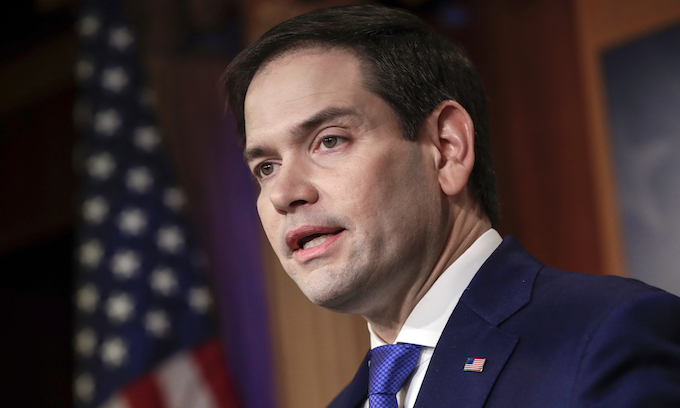(The Center Square) – Repubican U.S. Sen. Marco Rubio of Florida wants to stop China from flooding the automobile market via state subsidiaries, slave labor and property theft.
The Center Square reported Chinese automaker BYD, the world’s largest EV maker, wants to build a factory in Mexico for a 2.5% tariff instead of a 27.5% tariff.
The new factory follows BYD releasing a $14,000 EV in February that some in the industry say could “demolish” domestic EVs, often $40,000 more expensive.
BYD outsold Tesla in the fourth quarter of 2023. The foreign automaker said it produced more than 3 million new energy vehicles in 2023 compared to Tesla’s 1.8 million.
Rubio introduced three bills that he says will protect the American auto industry.
“America’s existing tariffs, once effective, are now insufficient to counter China’s newest strategies,” Rubio said in a statement. “But raising tariffs alone is not enough. We need a multi-pronged effort to prevent the Chinese Communist Party from entering the American auto market before it is too late. My legislation would safeguard American automakers and workers against the influx of artificially cheap vehicles from China.”
The first bill is the Closing Auto Tariffs Loopholes Act. It aims to treat motor vehicles produced by a foreign adversary and its controlled entities as if they originated in the territory of the foreign adversary.
The Strengthening Tariffs on Chinese Autos Act seeks to impose a new tariff of $20,000 on all Chinese vehicles imported into the U.S. This flat tariff would address the disproportionate advantage of lower-end Chinese autos; not be at the mercy of what an importer claims they paid; and close the “assists” loophole, which currently allows Chinese companies to subtract the cost of many inputs from the value of existing, percentage-based tariffs.
The last bill is the American Subsidies for American Autos Act. Currently, only one of the U.S.’s programs that incentivize the use of electric vehicles requires that final assembly occur in North America. This legislation would require vehicles to comply with the United States-Mexico-Canada Agreement’s rules-of-origin and labor value content criteria to qualify for any federal electric vehicle program.



















“The first bill is the Closing Auto Tariffs Loopholes Act. It aims to treat motor vehicles produced by a foreign adversary and its controlled entities as if they originated in the territory of the foreign adversary.
The Strengthening Tariffs on Chinese Autos Act seeks to impose a new tariff of $20,000 on all Chinese vehicles imported into the U.S.”
Do you really think the corrupt, sock-puppet president Joe Beijing OBiden is going to let this happen?
Joe’s Chinese puppet masters have so much “Big Guy” filth they can hold over Joe’s head that their fists are far enough up Sock Puppet Joe’s backside as to rattle his tonsils and control what comes out of his mouth,,,,They are obviously among the ones Joe keeps speaking of that if he says the wrong thing he will get into trouble,,,,(And probably go directly to jail),,,which causes him to say and DO the wrong thing that would make American car companys great again, great enough to pay taxes that sould support American social programs, not support Chinese military investment programs that soon will serve to destroy this nation with it’s own filthy lucre laundered Biden money where pay to play become Biden pay for playing.
Hell no.. IN FACT< i can see him Vetoing this even BEFORE ITS wrote..
Drill, Baby! Drill! Problem solved.